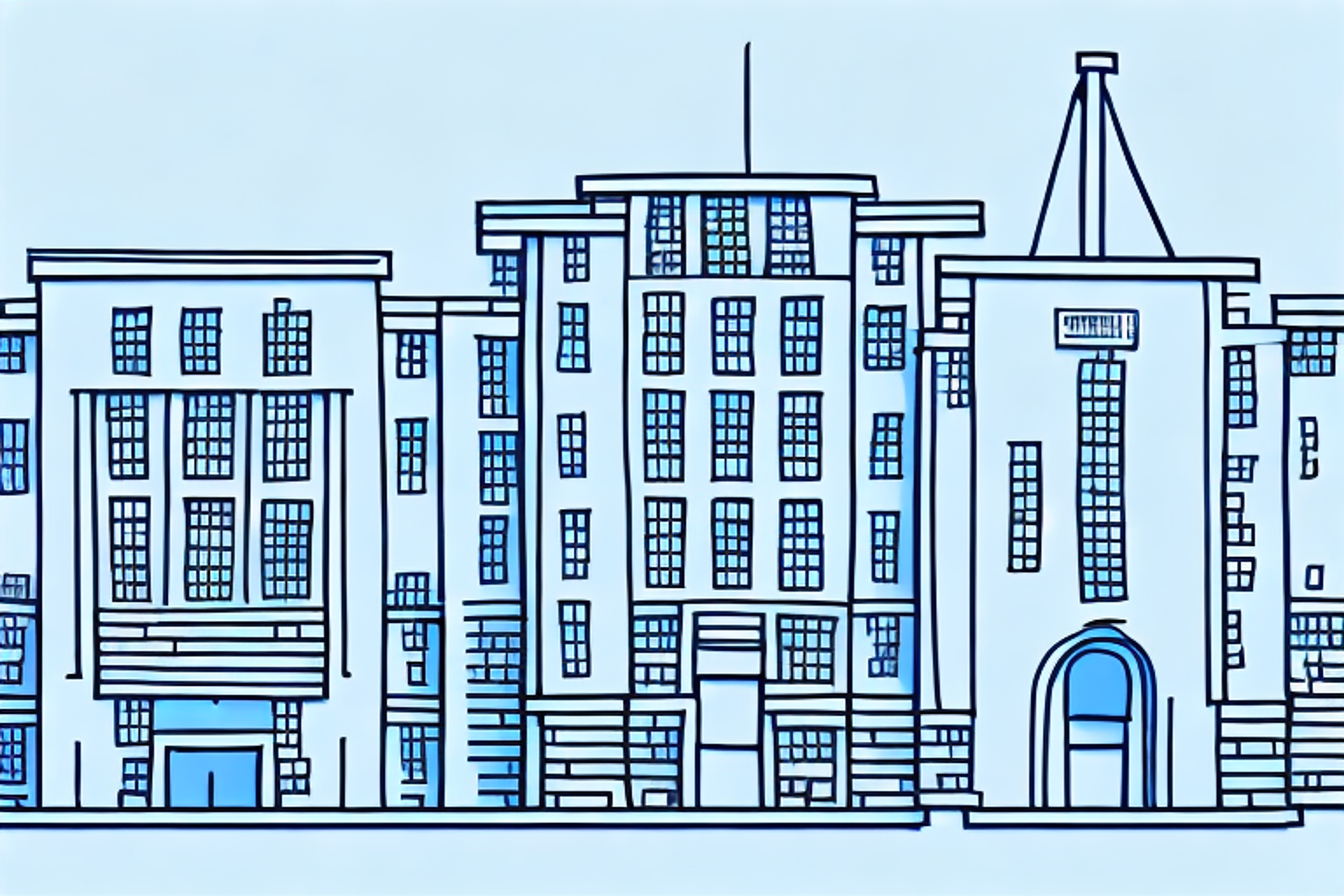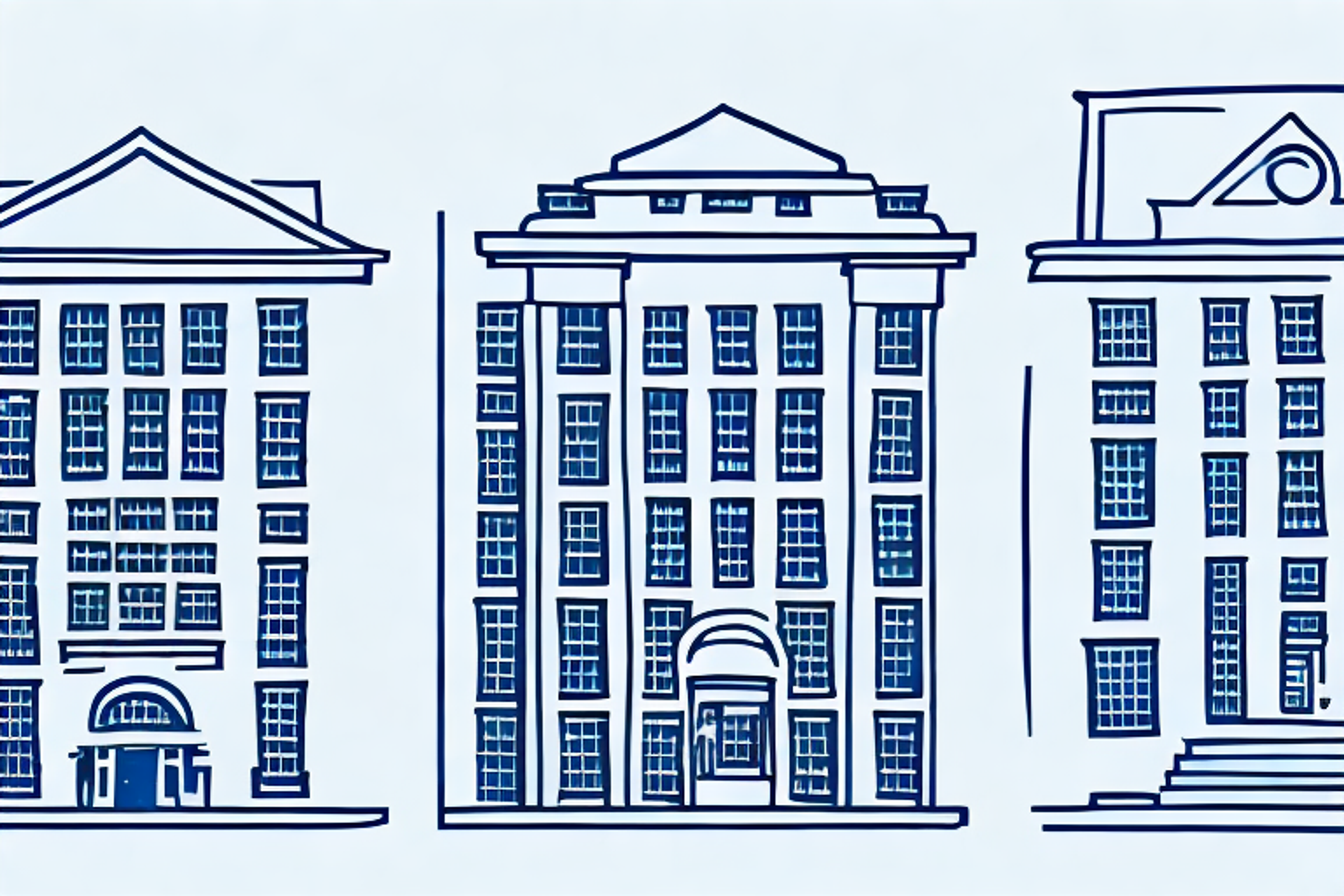Harvard Law School Vs. Northwestern University Pritzker School of Law: An In-Depth Comparison
Are you considering pursuing a law degree and wondering which school to choose? This article provides an in-depth comparison between Harvard Law School and Northwestern University Pritzker School of Law, highlighting the differences in curriculum, faculty, campus culture, and more.
Posted March 6, 2025

Table of Contents
If you're thinking of pursuing a career in law, attending a law school is an essential step in your journey. Law schools provide an excellent platform to gain knowledge about law, develop critical thinking skills, and establish professional connections that can last a lifetime. However, choosing the right law school can be a daunting task, with numerous factors to consider, such as location, faculty, curriculum, student culture, and financial aid options. In this article, we'll compare two of the most prestigious law schools in the country - Harvard Law School and Northwestern University Pritzker School of Law - and help you determine which one is the better fit for you.
Introduction: Choosing the Right Law School
Before we delve into the comparison between Harvard Law School and Northwestern University Pritzker School of Law, let's first understand how to choose the right law school that aligns with your goals and aspirations. Firstly, consider the school's geographical location, as it can impact your living arrangements, job prospects, and overall quality of life. Secondly, examine the faculty, coursework, and extracurricular activities offered by the school and how they fit into your interests and career aspirations. Finally, consider the school's tuition fees, scholarship options, and overall financial aid packages that best suit your budget and financial needs.
Another important factor to consider when choosing a law school is the school's reputation and ranking. A school's reputation can impact your job prospects and future career opportunities. It's important to research the school's ranking and reputation in the legal community to ensure that it aligns with your career goals.
Additionally, it's important to consider the school's culture and community. Law school can be a challenging and stressful experience, so it's important to choose a school where you feel comfortable and supported. Research the school's student organizations, events, and overall campus culture to ensure that it's a good fit for you.
Harvard Law School: Overview and History
Founded in 1817, Harvard Law School (HLS) is one of the most prestigious law schools globally, boasting an impressive alumni network of politicians, judges, scholars, and legal practitioners. The school is located in Cambridge, Massachusetts, and has a vast campus with state-of-the-art facilities, including a library, dining hall, sports complex, and several residential halls. HLS is committed to excellence in teaching, research and public service, and offers a diverse range of courses and research programs in various legal disciplines.
Harvard Law School has a rich history of producing influential legal scholars and practitioners. Notable alumni include former US President Barack Obama, Chief Justice of the United States John Roberts, and Supreme Court Justice Ruth Bader Ginsburg. The school has also been at the forefront of legal education reform, introducing innovative teaching methods such as the case method, which has since been adopted by many other law schools around the world. Today, HLS continues to be a leader in legal education and research, shaping the future of the legal profession.
Northwestern University Pritzker School of Law: Overview and History
Northwestern University Pritzker School of Law (NUSL) is another highly ranked law school, founded in 1859 in Chicago, Illinois. NUSL is known for its innovative curriculum, dedicated faculty, and world-renowned research centers focused on law and technology, international human rights, and public interest law. NUSL offers a range of degree programs, including JD, LLM, and JD-Ph.D. joint degree, and summer study abroad options.
In addition to its academic programs, NUSL also offers a variety of extracurricular activities and organizations for students to get involved in. These include moot court competitions, legal clinics, and student-run journals focused on various areas of law. NUSL also has a strong alumni network, with graduates working in a wide range of legal fields and industries around the world.
Location and Campus Facilities: Harvard vs. Northwestern
When it comes to location, both HLS and NUSL offer unique advantages and drawbacks depending on your preferences. HLS is situated in Cambridge, a suburb of Boston, which is ideal for students who love the vibrant lifestyle of a big city while enjoying the peaceful and scenic environment of a suburbs campus. On the other hand, NUSL is located in the heart of Chicago, providing students with exceptional social and career opportunities in one of America's liveliest cities. As for the campus facilities, both schools offer sophisticated academic and residential buildings, modern libraries, sports centers, and dining halls.
However, there are some differences in the campus facilities between the two schools. Harvard Law School has a larger campus with more green spaces and outdoor areas for students to enjoy. Northwestern University School of Law, on the other hand, has a more modern and technologically advanced campus with state-of-the-art classrooms and facilities. Additionally, NUSL has a dedicated legal clinic that provides students with hands-on experience in legal practice, while HLS has a wide range of research centers and institutes that offer opportunities for students to engage in cutting-edge legal research.
Faculty and Staff: Harvard vs. Northwestern
Both HLS and NUSL boast a highly qualified faculty and staff team, with a mix of distinguished academics, experienced practitioners, and prominent guest lecturers from various legal fields. At HLS, students have access to over 100 full-time faculty members with expertise in constitutional law, civil rights law, corporate law, and many more. Similarly, NUSL's faculty has several experienced scholars and practitioners renowned for their contributions to legal scholarship and law reform initiatives.
However, there are some differences in the faculty and staff composition between the two schools. For instance, HLS has a higher percentage of faculty members who have clerked for the Supreme Court or served as federal judges, which may provide students with unique insights into the workings of the judiciary. On the other hand, NUSL has a more diverse faculty in terms of race, ethnicity, and gender, which may offer students a broader perspective on legal issues affecting marginalized communities. Ultimately, both schools offer exceptional legal education and opportunities to learn from some of the best legal minds in the country.
Curriculum and Course Offerings: Harvard vs. Northwestern
One of the most significant factors to consider when choosing law school is the curriculum and course offerings available. At HLS, students can choose from several core areas of study, including criminal law, environmental law, intellectual property, and international law, and further specialize in specific subfields through elective courses and clinical programs. Similarly, NUSL offers a dynamic curriculum focused on practical legal skills and interdisciplinary perspectives, with courses in business law, health law, public law, and more. NUSL emphasizes experiential learning, with clinics revolving around corporate counseling, criminal defense, civil rights litigation, and other legal advocacy areas.
Student Life and Culture: Harvard vs. Northwestern
When it comes to student life and culture, HLS and NUSL offer different but equally vibrant experiences. At HLS, students can participate in various extracurricular organizations, including law journals, moot court competitions, pro bono clinics, and affinity groups related to race, gender, and sexual orientation. HLS also hosts annual events, such as the Parody show and the Charity Auction, where students can showcase their talents and socialize with fellow students, faculty, and alumni. In contrast, NUSL's student culture is more collaborative and community-oriented, with several student organizations focused on public interest law, diversity, and social justice. NUSL also offers several events, such as the Public Interest Week, where students can engage with alumni and practitioners in various public interest careers.
Admissions Process and Requirements: Harvard vs. Northwestern
Both HLS and NUSL have highly competitive admission processes, with a selective process aimed at admitting the best and brightest students from around the world. To apply to HLS, students must have a bachelor's degree, complete the LSAT or GRE, submit academic transcripts, personal statement, resume, and two letters of recommendation. NUSL requires a bachelor's degree, LSAT or GRE scores, transcripts, personal statement, resume, letters of recommendation, and an optional video interview.
Tuition Fees and Financial Aid Options: Harvard vs. Northwestern
Law school tuition fees can be a significant financial burden, and both HLS and NUSL have high tuition rates compared to other law schools in the country. However, both schools offer generous financial aid options, including need-based grants, merit-based scholarships, and loan assistance programs. At HLS, the tuition fees for the 2021 academic year were approximately $67,081, and the school provided financial aid to over 70% of its students. Similarly, NUSL's tuition fees for the 2021 academic year were approximately $68,574, and the school provided financial aid to over 90% of its students.
Employment Prospects after Graduation: Harvard vs. Northwestern
The ultimate goal for most law students is to secure a job after graduation that aligns with their career aspirations and financial needs. Both HLS and NUSL have a high employment rate, with over 90% of their graduates securing employment within ten months of graduation. HLS graduates usually pursue careers in big law firms, government agencies, academic institutions, or non-profit organizations, while NUSL graduates tend to pursue public interest law, litigation, and corporate practice. Both schools have active career development centers that offer job search assistance, networking opportunities, and career counseling services.
Alumni Network and Support Systems: Harvard vs. Northwestern
An essential aspect of attending law school is establishing connections with alumni and other legal practitioners who can offer mentorship, career advice, and job referrals. Both HLS and NUSL have active alumni networks, with several notable alumni who have made significant contributions to the legal profession. HLS's alumni network includes prominent legal scholars, judges, political leaders, and business executives, while NUSL's alumni network includes renowned litigators, human rights advocates, and social entrepreneurs. Both schools also offer various support systems for students, such as wellness centers, academic advising, and counseling services.
Student Testimonials and Experiences at both schools
Students' experiences and testimonials can provide valuable insights into the academic and social aspects of attending law school. Suppose you're considering Harvard Law School. In that case, you can read testimonials from students who have shared their experiences, interactions with faculty, and memories of living on campus. Similarly, NUSL students provide firsthand accounts of their experiences and how the school has impacted their careers, with stories of life-changing internships, clinics, and community engagement activities.
Conclusion: Which law school is right for you?
Choosing between Harvard Law School and Northwestern University Pritzker School of Law can be a challenging decision, as both schools offer top-notch legal education, world-class faculty, and vibrant student cultures. Ultimately, the decision comes down to which school better aligns with your preferences, goals, and values. Consider factors such as campus location, curriculum, student culture, and career goals when making your decision. Visit the school's website, talk to current students, attend virtual open houses, and read testimonials to help you make an informed decision. Remember, attending a law school can be a life-changing experience that sets the foundation for a rewarding legal career, so choose wisely.











